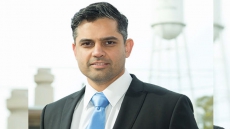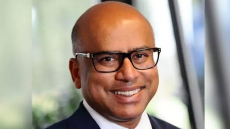US Federal regulators on Thursday charged the blood-testing company Theranos, its founder and CEO Elizabeth Holmes and former president Indian-American Ramesh "Sunny" Balwani with "massive fraud".
Holmes, 34, and Balwani, 52, raised more than US$ 700 million by deceiving investors about the company's technology, and business and financial performance, the Securities and Exchange Commission (SEC) said in a statement yesterday.
The SEC alleged that Theranos, Holmes, and Balwani falsely claimed that its key product – a portable blood analyzer – could conduct comprehensive blood tests from finger drops of blood, revolutionising the blood testing industry.
In truth, Theranos' proprietary analyzer could complete only a small number of tests, and the company used analyzers manufactured by others to conduct majority of patient tests.
Holmes and Balwani also claimed that Theranos' products were deployed by the US Department of Defense on the battlefield in Afghanistan and that the company would generate more than US$ 100 million in revenue in 2014.
In reality, Theranos' technology was never deployed by the US Department of Defense and generated a little more than US$ 100,000 in revenue from operations in 2014.
Theranos and Holmes neither admitted nor denied the allegations in the SEC's complaint and have agreed to settle the fraud charges levied against them.
Holmes agreed to pay a US$ 500,000 penalty, be barred from serving as an officer or director of a public company for 10 years, return the remaining 18.9 million shares that she obtained during the fraud, and relinquish her voting control of Theranos.
Further, due to the company's liquidation preference, if Theranos is acquired or is otherwise liquidated, Holmes would not profit from her ownership until over US$ 750 million is returned to defrauded investors and other preferred shareholders.
Holmes was once touted as a rising star in Silicon Valley who promised to disrupt the health technology industry with her company's path-breaking technology for blood-testing.
Balwani, of California, was the president and Chief Operating Officer of Theranos from September 2009 to May 2016.
In 2009, as Theranos was on the verge of running out of money, Holmes turned to her then-boyfriend Balwani, who guaranteed a line of credit for the company. Balwani joined the company and became its president and COO that same year, the SEC said.
From the time that Balwani joined Theranos until his departure in 2016, Theranos had no other senior managing executives besides Holmes and Balwani.
They collaborated closely with each other and made decisions about the company together.
From 2013 through 2015, Balwani received a salary of between approximately US$ 99,000 and US$ 200,000.
The SEC will litigate its claims against Balwani in federal district court in the Northern District of California.
Steven Peikin, Co-Director of the SEC's Enforcement Division, said investors are entitled to complete truth and candor from companies and their executives.
"The charges against Theranos, Holmes, and Balwani make clear that there is no exemption from the anti-fraud provisions of the federal securities laws simply because a company is non-public, development-stage, or the subject of exuberant media attention," he said.
Director of the SEC's San Francisco Regional Office Jina Choi said the Theranos story is an "important lesson" for Silicon Valley where innovators who seek to "revolutionise and disrupt" an industry.
"They must tell investors the truth about what their technology can do today, not just what they hope it might do someday," she said.





